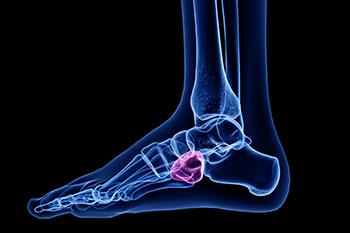
Arthritis in the ankles and feet often feels more noticeable when weather conditions change. Many people report increased stiffness and aching during cold or damp periods. Higher humidity may contribute to joint swelling by affecting how tissues respond to pressure, while cooler temperatures can reduce circulation and increase muscle tightness around joints. Warmer climates with steady temperatures are often better tolerated because joints stay more flexible and muscles relax more easily. Dry air may also reduce the sensation of heaviness or swelling in the lower limbs. That said, climate alone does not cause arthritis, and individual responses vary widely. Wearing supportive footwear, regular movement, and proper medical care remain important regardless of location. If lower foot or ankle pain worsens with weather changes or limits daily activity, it is suggested that you see a podiatrist for a proper diagnosis and appropriate treatment.
Arthritis can be a difficult condition to live with. If you are seeking treatment, contact One of our podiatrists from Foot and Ankle Medical Center. Our doctors can provide the care you need to keep you pain-free and on your feet.
Arthritic Foot Care
Arthritis is a joint disorder that involves the inflammation of different joints in your body, such as those in your feet. Arthritis is often caused by a degenerative joint disease and causes mild to severe pain in all affected areas. In addition to this, swelling and stiffness in the affected joints can also be a common symptom of arthritis.
In many cases, wearing ill-fitting shoes can worsen the effects and pain of arthritis. Wearing shoes that have a lower heel and extra room can help your feet feel more comfortable. In cases of rheumatoid arthritis, the arch in your foot may become problematic. Buying shoes with proper arch support that contour to your feet can help immensely.
Alleviating Arthritic Pain
- Exercises that stretch the foot can prevent further pain and injury and increase mobility
- Most of the pain can be alleviated with anti-inflammatory drugs, heat, and topical medications
- Massages can help temporarily alleviate pain.
It is best to see your doctor for the treatment that is right for your needs and symptoms. Conditions vary, and a podiatrist can help you determine the right method of care for your feet.
If you have any questions please feel free to contact our offices located in New Port Richey and Spring Hill, FL . We offer the newest diagnostic tools and technology to treat your foot and ankle needs.

Pickleball has become a favorite pastime in recent years, especially among adults looking for a social and active sport. Despite its friendly image, the game places repeated stress on the feet and ankles. Quick lateral movements, sudden stops, and short bursts of speed can strain tendons and joints. Studies and clinical experience show that injuries are seen more often in older players, particularly men. Severe tendon damage near the heel is frequently diagnosed, along with ankle sprains, plantar fascia strain, and stress injuries. Wearing court-specific shoes, warming up properly, and allowing time for recovery can help reduce injury risk. Listening to early pain signals is also important, since playing through discomfort often leads to longer setbacks. If foot or ankle pain develops during pickleball play, it is suggested that you seek evaluation by a podiatrist to help you identify the cause and guide treatment.
Ankle and foot injuries are common among athletes and in many sports. They can be caused by several problems and may be potentially serious. If you are feeling pain or think you were injured in a sporting event or when exercising, consult with One of our podiatrists from Foot and Ankle Medical Center. Our doctors will assess your condition and provide you with quality foot and ankle treatment.
Common Injuries
The most common injuries that occur in sporting activities include:
- Achilles Tendonitis
- Achilles Tendon Rupture
- Ankle Sprains
- Broken Foot
- Plantar Fasciitis
- Stress Fractures
- Turf Toe
Symptoms
Symptoms vary depending upon the injury and in some cases, there may be no symptoms at all. However, in most cases, some form of symptom is experienced. Pain, aching, burning, bruising, tenderness, tightness or stiffness, sensation loss, difficulty moving, and swelling are the most common symptoms.
Treatment
Just as symptoms vary depending upon the injury, so do treatment options. A common treatment method is known as the RICE method. This method involves rest, applying ice, compression and elevating the afflicted foot or ankle. If the injury appears to be more serious, surgery might be required, such as arthroscopic or reconstructive surgery. Lastly, rehabilitation or therapy might be needed to gain full functionality in the afflicted area. Any discomfort experienced by an athlete must be evaluated by a licensed, reputable medical professional.
If you have any questions please contact our offices located in New Port Richey and Spring Hill, FL . We offer the newest diagnostic and treatment technologies for all your foot and ankle needs.

Cuboid stress fractures are uncommon but painful injuries that affect a small bone on the outer side of the midfoot. They often develop from repetitive loading rather than a single injury, making them easy to overlook early on. Runners, dancers, and people who walk long distances may notice a deep, aching discomfort that worsens with activity and improves with rest. Swelling, tenderness, and pain when pushing off the foot are common signs. Because symptoms can mimic tendon strain or arthritis, proper diagnosis is sometimes delayed. Imaging such as X rays or advanced scans may be needed to confirm the problem. Treatment usually focuses on reducing stress to the bone through activity modification, supportive footwear, and sometimes immobilization. With proper care, healing follows. It is suggested that anyone with persistent outer foot pain consider seeing a podiatrist for an accurate diagnosis and a treatment plan.
Cuboid syndrome, also known as cuboid subluxation, occurs when the joints and ligaments near the cuboid bone in the foot become torn. If you have cuboid syndrome, consult with One of our podiatrists from Foot and Ankle Medical Center. Our doctors will assess your condition and provide you with quality foot and ankle treatment.
Cuboid syndrome is a common cause of lateral foot pain, which is pain on the outside of the foot. The condition may happen suddenly due to an ankle sprain, or it may develop slowly overtime from repetitive tension through the bone and surrounding structures.
Causes
The most common causes of cuboid syndrome include:
- Injury – The most common cause of this ailment is an ankle sprain.
- Repetitive Strain – Tension placed through the peroneus longus muscle from repetitive activities such as jumping and running may cause excessive traction on the bone causing it to sublux.
- Altered Foot Biomechanics – Most people suffering from cuboid subluxation have flat feet.
Symptoms
A common symptom of cuboid syndrome is pain along the outside of the foot which can be felt in the ankle and toes. This pain may create walking difficulties and may cause those with the condition to walk with a limp.
Diagnosis
Diagnosis of cuboid syndrome is often difficult, and it is often misdiagnosed. X-rays, MRIs and CT scans often fail to properly show the cuboid subluxation. Although there isn’t a specific test used to diagnose cuboid syndrome, your podiatrist will usually check if pain is felt while pressing firmly on the cuboid bone of your foot.
Treatment
Just as the range of causes varies widely, so do treatments. Some more common treatments are ice therapy, rest, exercise, taping, and orthotics.
If you have any questions, please feel free to contact our offices located in New Port Richey and Spring Hill, FL . We offer the newest diagnostic and treatment technologies for all your foot care needs.

